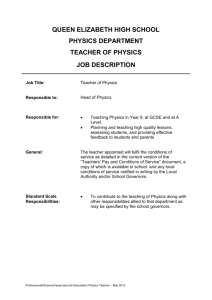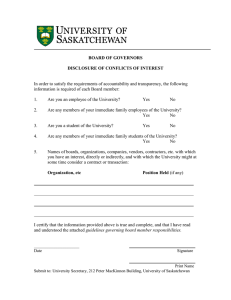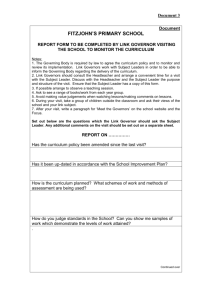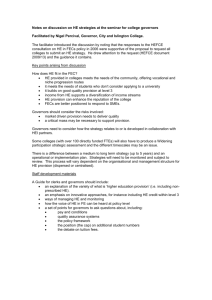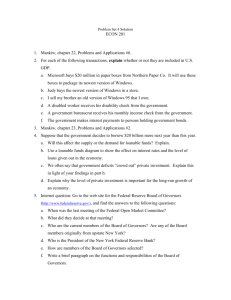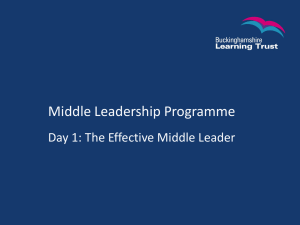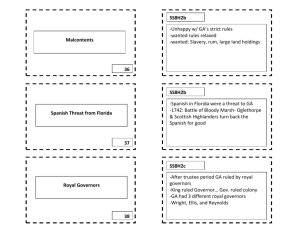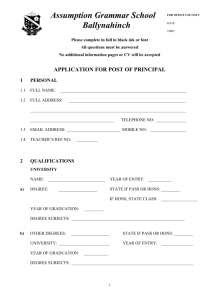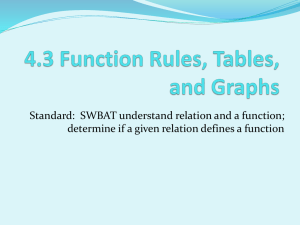Gateshead Governors` Conference
advertisement
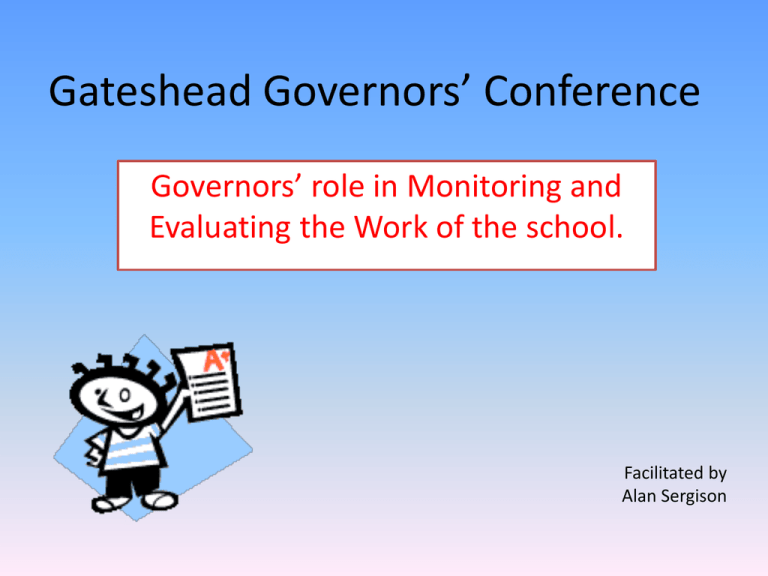
Gateshead Governors’ Conference Governors’ role in Monitoring and Evaluating the Work of the school. Facilitated by Alan Sergison To provide a sense of direction for the work of The school. How well does the governing body fulfil its statutory duties in helping to shape the direction of the school, and do they have a good understanding of its strengths and weaknesses? To hold School to account for the standards and quality of education provided. To support the work of the school as a reflective friend. Strategic Direction (1) Brunton proposes that there has been a significant increase over the last three decades in the control that schools exercise over their future direction and strategic plans as a results of the “unprecedented changes in the responsibilities that schools face” (2006:129). Successive governments since the 1980s have increased the amount of autonomy that governing bodies and headteachers have for managing schools by delegating resource management, facilitating new governance and school improvement models and workforce remodelling. However this has been within a framework that has equally demanded increased accountability through a national curriculum, published league tables, external inspection, responsiveness to local circumstances and national standards for heads and teachers. Strategic Direction (2) This trend is continued in The Schools White Paper 2010, “what is needed most of all is decisive action to free our teachers from constraint and improve professional status and authority, raise the standards set by our curriculum and qualifications to match the best in the world and, having freed schools from external control, hold them effectively to account for the results they achieve” (HM Government, 2010:7) To begin with, some basic questions for us to consider. •What is school for? •Whose school is it anyway? •How do you know where your school is going? Oh Dear, I do not know which way to go! Where do you want to go? I don’t know! I don’t know! Well it really doesn’t matter what which you go then does it! No I suppose not! Strategic Direction So, how are you as governors going to contribute in an informed way to decisions around the strategic direction of the school? The assumption is you have to get into school to become better informed. •How do you currently do this? •What are the advantages and disadvantage of current methods of monitoring and evaluating? Discuss these on your tables and make notes. What do we mean by monitoring and evaluating? Let us have a look at what governors might monitor and evaluate. •Getting started – breaking down barriers! •Developing a protocol for classroom visits – what is acceptable, what is not? •Pupil work scrutiny •Scrutiny of teacher’s planning What is OFSTED’s view of what constitutes good governance? HOMEWORK A quiz – How much do you know? Finally – remember you are not inspectors! You are not inspecting the quality of provision in the school, that is not the role. You would not dream of questioning your bank manager about his knowledge of financial services – or would you !!? You would not expect to have a governor of the health authority in the theatre monitoring and evaluating a surgical procedure! So, do not fall into he trap of making sweeping judgements – remember your role is as a critical friend – you are simply visiting the school to build your knowledge and understanding of the daily life of the school so that you can contribute in an informed and considered way to decisions around the strategic direction of your school. Remember the protocol – This is not inspection. Hold on! Are you sure that it the correct scalpel for that incision Sir John?
